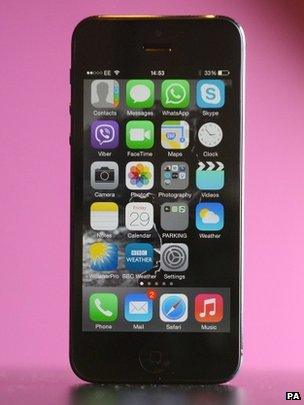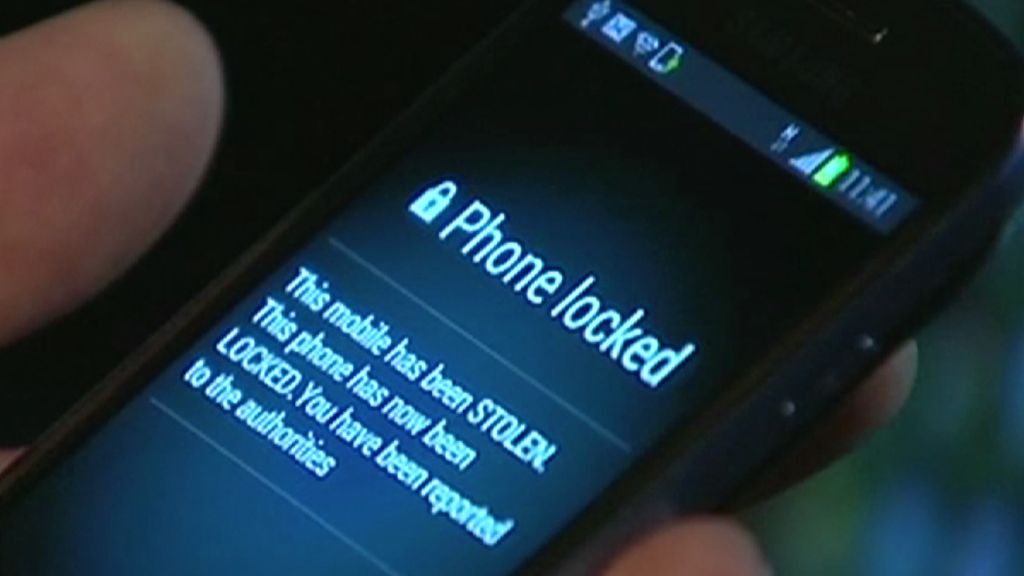Apple iPhones among 'most stolen' handsets - Home Office
- Published

The research suggests people are most likely to have their phones stolen directly from their person
Apple's latest iPhone models were the smartphones most likely to be stolen in England and Wales between August 2012 and January 2014, figures suggest.
A Mobile Phone Theft Ratio, external compiled by the Home Office indicates the iPhone 5, 5C, 5S and 4S were most targeted, followed by the Blackberry 9790.
The findings were based on analysis of crime data in London. Samsung and HTC phones were also on the index.
Apple said it was leading the industry in protecting people's devices.
The research concurred that the introduction of stronger security features in phones is likely to have reduced theft levels.
Women and 14 to 24-year-olds are the two groups most likely to have phones stolen, according to the data.
People are most likely to have their phones stolen directly from their person, through pick-pocketing, or when the handset is briefly left unattended, the research adds.
Home Secretary Theresa May said that while crime had fallen under the coalition government, the level of mobile phone theft remained "a concern" and she hoped the new index would inform consumers about the habits of thieves.
Pick-pocketing
She said: "People are increasingly carrying their lives in their pockets, with bank details, emails and other sensitive personal information easily accessible through mobile phones.
"This is why it is vital that government, police and industry work together to tackle this crime."
She said that the mobile phone industry was also taking action against criminals and had introduced features that enabled phones to be tracked and wiped if they were stolen.
There were 742,000 victims of mobile phone theft in England and Wales during 2012-13 - according to the Crime Survey for England and Wales.
In London alone, almost 100,000 mobile phones were reported stolen to the Metropolitan Police during 2013.
The Home Office says it recognises the picture may have changed following the "widespread introduction" of security features by manufacturers and intends to publish further analysis next year.
It also notes that Metropolitan Police intelligence indicates there was a reduction in thefts of iPhones after Apple introduced new security measures in its iOS 7 operating system update in September last year.
A spokesman for Apple told the BBC: "Apple has led the industry in helping customers protect their lost or stolen devices since the launch of Find My iPhone in 2009 by allowing customers to remotely set a passcode or erase all their personal data.
"With iOS 7, Find My iPhone includes a feature called Activation Lock, which is designed to prevent anyone else from using your iPhone... if you ever lose it. This can help you keep your device secure, even if it is in the wrong hands, and can improve your chances of recovering it."
- Published14 April 2014

- Published15 January 2013
